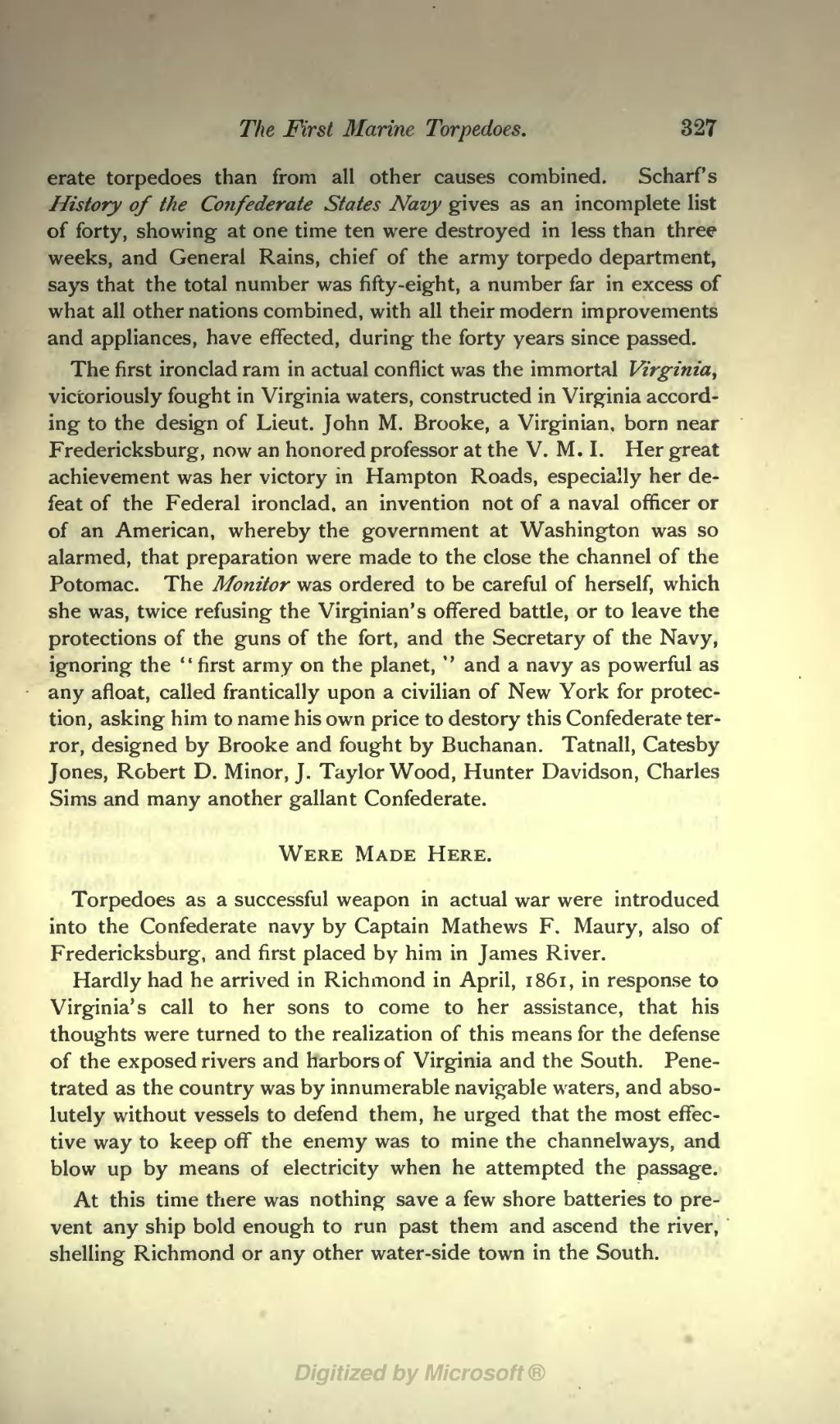erate torpedoes than from all other causes combined. Scharf's History of the Confederate States Navy gives as an incomplete list of forty, showing at one time ten were destroyed in less than three weeks, and General Rains, chief of the army torpedo department, says that the total number was fifty-eight, a number far in excess of what all other nations combined, with all their modern improvements and appliances, have effected, during the forty years since passed.
The first ironclad ram in actual conflict was the immortal Virginia, victoriously fought in Virginia waters, constructed in Virginia according to the design of Lieut. John M. Brooke, a Virginian, born near Fredericksburg, now an honored professor at the V. M. I. Her great achievement was her victory in Hampton Roads, especially her defeat of the Federal ironclad, an invention not of a naval officer or of an American, whereby the government at Washington was so alarmed, that preparation were made to the close the channel of the Potomac. The Monitor was ordered to be careful of herself, which she was, twice refusing the Virginian's offered battle, or to leave the protections of the guns of the fort, and the Secretary of the Navy, ignoring the "first army on the planet," and a navy as powerful as any afloat, called frantically upon a civilian of New York for protection, asking him to name his own price to destroy this Confederate terror, designed by Brooke and fought by Buchanan. Tatnall, Catesby Jones, Robert D. Minor, J. Taylor Wood, Hunter Davidson, Charles Sims and many another gallant Confederate.
Were Made Here.
Torpedoes as a successful weapon in actual war were introduced into the Confederate navy by Captain Matthew F. Maury, also of Fredericksburg, and first placed by him in James River.
Hardly had he arrived in Richmond in April, 1861, in response to Virginia's call to her sons to come to her assistance, that his thoughts were turned to the realization of this means for the defense of the exposed rivers and harbors of Virginia and the South. Penetrated as the country was by innumerable navigable waters, and absolutely without vessels to defend them, he urged that the most effective way to keep off the enemy was to mine the channel-ways, and blow up by means of electricity when he attempted the passage.
At this time there was nothing save a few shore batteries to prevent any ship bold enough to run past them and ascend the river, shelling Richmond or any other water-side town in the South.
